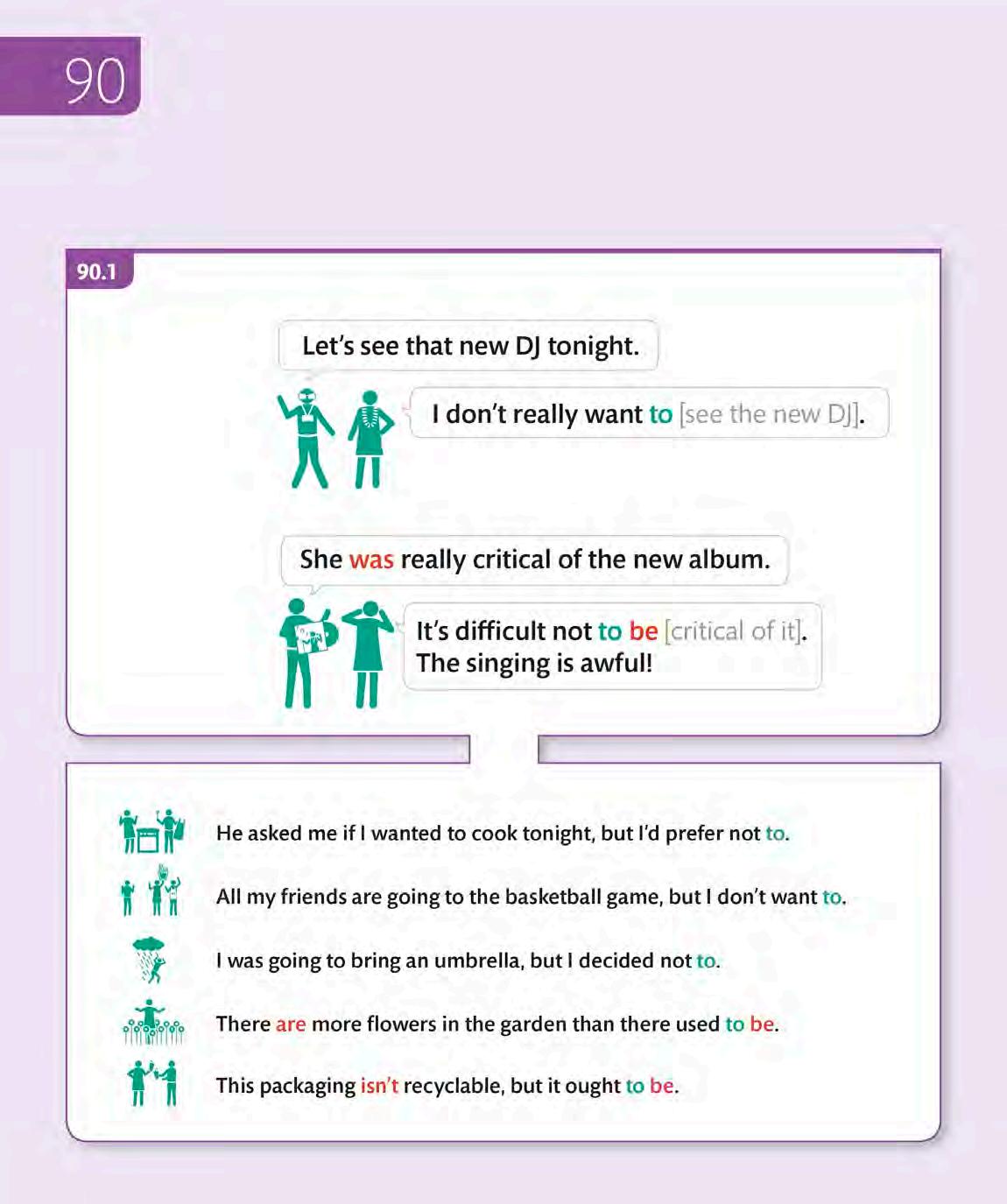Glossary
closed question A question that can be answered with “yes” or “no,” e.g. Are you English? see also open question
absolute adjective A word that describes a quality which cannot be changed or modified, e.g. unique.
agreement When the verb form is correct for the subject, e.g. He is = singular subject + singular verb.
abstract noun A word that refers to a quality rather than a thing or person, e.g. beauty, hope.
apostrophe The punctuation mark that shows either belonging, e.g. John’s cat, or a contraction e.g. I’m happy.
action verb (dynamic verb) A type of verb that describes an action, e.g. run, and can be used in the simple and continuous tenses. see also state verb active voice Indicates that the person or thing who is doing the action is the subject of the verb. see also passive voice adjective A word that describes a noun or pronoun, e.g. quick. adverb A word that describes a verb, adjective, or another adverb, e.g. quickly. adverb of degree An adverb that tells you “how much,” e.g. extremely. adverb of frequency An adverb that tells you “how often,” e.g. usually. adverb of manner An adverb that tells you “how,” e.g. badly. adverbial A phrase that is used as an adverb, e.g. on the table (expressing place), tomorrow evening (expressing time). agent The person or thing that does the action. The subject of the verb in an active clause, but not in a passive clause.
350
article The words a, an, and the, which show whether something is general or specific. see also zero article auxiliary verb A verb which is used with another verb, e.g. to form tenses, most commonly be, do, and have. see also main verb backchanneling The words and noises that a listener makes to show they are listening, e.g. Really? backshift In reported speech, when the verb moves back one tense into the past, e.g. present simple to past simple. base form (bare infinitive) The most basic form of a verb, e.g. be, run, write. see also infinitive cardinal number The numbers used for counting, e.g. one, two. see also ordinal number classifying adjective An adjective that describes the type of the noun that it defines, e.g. in medical student, “medical” describes the type of student. clause A group of words that contains a verb.
collective noun A singular noun that refers to a group of people or things, e.g. family, team. comparative adjective An adjective that compares one thing or group of things with another, e.g. better. see also superlative adjective complement The word or phrase that comes after verbs such as be, become, seem, appear, e.g. “happy” in She’s happy. see also linking verb complex preposition A preposition that contains two or more words, e.g. next to, because of. compound noun A noun that contains two or more words, e.g. post office. compound tense A tense which uses an auxiliary verb, e.g. the present perfect: has done. concrete noun A noun that refers to something you can touch, see, hear, smell, or taste, e.g. table, teacher. conditional The verb structure used when one event or situation depends on another event or situation happening first. conjunction A word that links two words or groups of words, e.g. and, because, if. consonant Most letters / sounds in English, but not a, e, i, o, u. y can operate as a consonant or a vowel.
continuous (progressive) Continuous tenses express actions that are in progress at a specific time, e.g. I’m writing. contraction Two words that are joined with an apostrophe to form one word, e.g. we’re. conversational ellipsis When words are left out in informal conversation, e.g. [Do you] Want a cup of coffee? coordinating conjunction A word that links two clauses of equal importance, e.g. and, but, or. see also subordinating conjunction countable A noun that can be counted, e.g. one book, two books. see also uncountable defining relative clause A clause that starts with a relative pronoun (such as who or which). It gives information that defines something in the main clause. see also non-defining relative clause definite article The word the, which specifies which noun that follows it, e.g. the house in the woods. see also indefinite article demonstrative determiner / pronoun Words that specify a noun as closer to (this, these) or more distant from (that, those) the speaker, e.g. This watch is cheaper than that one in the window. dependent preposition A preposition that always follows a particular verb, noun, or adjective, e.g. afraid of. determiner A word that comes before a noun and identifies it, e.g. the book, this book.







































